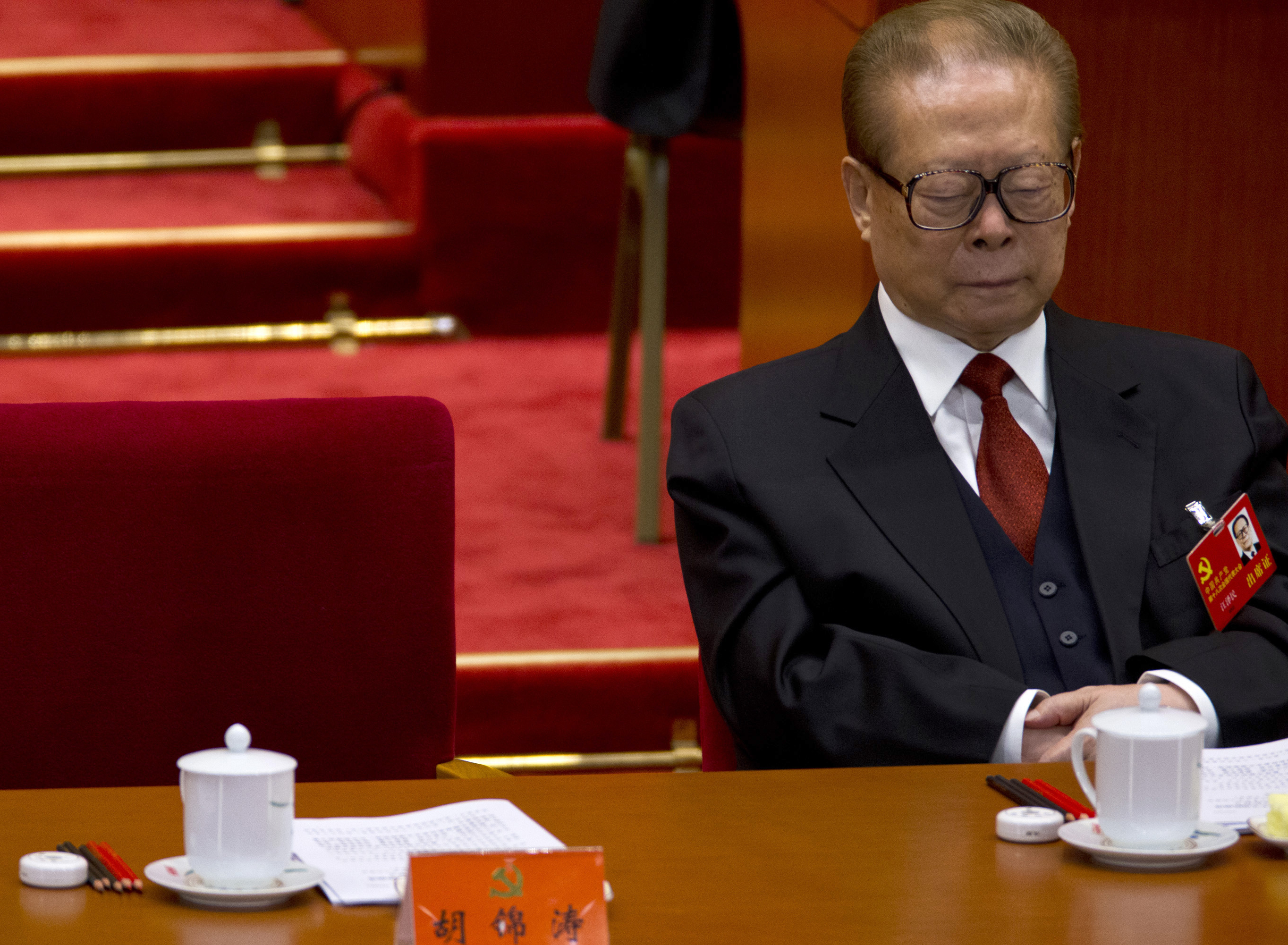Must ... stay .... awake: A Chinese paramilitary police officer yawns and his colleagues fall asleep while then-President Hu Jintao delivers a speech at the Great Hall of the People in Beijing, China, Dec. 18, 2008.
Must ... stay .... awake: A Chinese paramilitary police officer yawns and his colleagues fall asleep while then-President Hu Jintao delivers a speech at the Great Hall of the People in Beijing, China, Dec. 18, 2008.
Andy Wong/APSuffer from insomnia? The droning rhythm of a Chinese Communist official reading a work report out loud will likely do the trick.
It certainly does for many party members: Just 10 minutes into any party meeting, look down the serried ranks of the attendees, and you'll spot the dozers and snoozers, napping away, heads lolling lazily toward their neighbors.
But this could be a thing of the past, since the new Communist leadership has declared war on boring meetings. And no, it's not a fake news report from The Onion. None other than the state mouthpiece, Xinhua, ran an official statement issued after the first Politburo meeting, calling for short meetings with "no empty and rigmarole talks."
China's excitable social media platforms are already abuzz about a meeting last week, when the new corruption-buster Wang Qishan asked attendees not to read aloud from their notes, but â€" shock, horror â€" to engage in real discussion.
"It was fresh and new and we had to concentrate," politics professor Zhou Shuzhen said of the meeting, to The Christian Science Monitor.
Even the party's top brass isn't immune to the siren call of the snooze: Jiang Zemin, formerly China's president and top party leader, dozes while then-Chinese President and Chinese Communist Party General Secretary Hu Jintao reads a work report during the opening session of 18th Communist Party Congress at the Great Hall of the People in Beijing, Nov. 8.
Even the party's top brass isn't immune to the siren call of the snooze: Jiang Zemin, formerly China's president and top party leader, dozes while then-Chinese President and Chinese Communist Party General Secretary Hu Jintao reads a work report during the opening session of 18th Communist Party Congress at the Great Hall of the People in Beijing, Nov. 8.
Alexander F. Yuan/APThe revolution will not apparently stop with an end to boring meetings. The flashy, over-the-top red carpet receptions so favored by government officials are also facing the chop.
"No welcome banner, no red carpet, no floral arrangement or grand receptions," Xinhua declared. Entourages will be frowned upon, as will the widely unpopular traffic controls that allow motorcades to whiz past lines of frustrated, stationary drivers.
"The style of officials, particularly top officials, has an important impact upon the style of the party and the style of the government and even on the whole of society," the statement said.
State media has been told to restrain themselves from writing pointless stories about official events unless there is real news value â€" an order which, if actually followed, would produce some of the shortest newspapers ever seen.
This is the first concrete sign of change by China's new Communist Party leader, Xi Jinping, who took over the world's biggest political party less than a month ago.
This also coincides with confirmation that Sichuan's deputy party secretary, Li Chuncheng, is under investigation for corruption, the first senior target of an intensified anti-corruption drive.
This comes at a time of widespread discontent with corrupt party officials, following a number of explosive scandals, including the murder conviction of the wife of Bo Xilai, one of China's most prominent politicians.
The initial reaction to the war on extravagance has been positive, if wary. On China's version of Twitter, many applauded the move as a good beginning, though some saw it as a publicity stunt.
One Internet user, whose handle is Dashuaijiang, warned, "Such requirements were seen even 20 years ago, but they never came true." Another user, Zuoan Nvwang, said, "I love our new boss. I hope that during his term, he will make our political and economic systems more Westernized."
That's not yet on the cards, but putting an end to meetings that regularly bore their participants to sleep seems like a crowd-pleasing way to start.



 8:40 AM
8:40 AM

